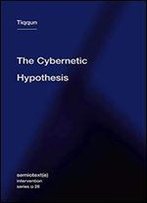
Forensic Psychology: A Very Short Introduction
by David Canter /
2010 / English / PDF
3 MB Download
Lie detection, offender profiling, jury selection, insanity in the
law, predicting the risk of re-offending , the minds of serial
killers, and many other topics that fill news and fiction are all
aspects of the rapidly developing area of scientific psychology
broadly known as Forensic Psychology. This fascinating
Lie detection, offender profiling, jury selection, insanity in the
law, predicting the risk of re-offending , the minds of serial
killers, and many other topics that fill news and fiction are all
aspects of the rapidly developing area of scientific psychology
broadly known as Forensic Psychology. This fascinatingVery
Short Introduction
Very
Short Introduction discusses all the aspects of psychology
that are relevant to the legal and criminal process as a whole. It
includes explanations of criminal behavior and criminality,
including the role of mental disorder in crime, and it reveals how
forensic psychology contributes to helping investigate the crime
and catching the perpetrators. David Canter also explains how
psychologists provide guidance to all those involved in civil and
criminal court proceedings, including both the police and the
accused, and what expert testimony can be provided by a
psychologist about the offender at the trial. Finally, Canter
describes how forensic psychology is used, particularly in prisons,
to help in the management, treatment and rehabilitation of
offenders, once they have been convicted.
discusses all the aspects of psychology
that are relevant to the legal and criminal process as a whole. It
includes explanations of criminal behavior and criminality,
including the role of mental disorder in crime, and it reveals how
forensic psychology contributes to helping investigate the crime
and catching the perpetrators. David Canter also explains how
psychologists provide guidance to all those involved in civil and
criminal court proceedings, including both the police and the
accused, and what expert testimony can be provided by a
psychologist about the offender at the trial. Finally, Canter
describes how forensic psychology is used, particularly in prisons,
to help in the management, treatment and rehabilitation of
offenders, once they have been convicted.











